On the Iowa Caucuses
Cross-posted from PoliBlog:
There is much romanticism about the Iowa Caucuses and its exercise in “grassroots” democracy and its active nature (people meeting together, discussing and voting rather than passively standing in line, filling out a ballot and going home). Somehow the idea that candidates vying for the chance to compete for one of the most powerful offices in the world being influence by chats in somebody’s living room just sounds especially democratic.
However, when it boils right down to it, romantic notions and snacks in your neighbor’s living room doesn’t make for good (or real) democracy. To wit (fromWaPo: They Know How to Caucus):
Of the state’s 2 million registered voters, a hard-fought battle in either party typically brings out no more than 125,000 participants, who must show up at a specific time on a midwinter Monday evening and are expected to stay at least two hours. The process can drag on even longer, particularly on the Democratic side, where voters must disclose their candidate preference publicly and where complex rules for apportioning delegates can result in revotes.
So, in other words, because of the timing and intense media scrutiny given to this contest, a relative handful of the population of a small state can directly influence which candidates are perceived as electable and which candidates are perceived as damaged goods.
And, for an encore, the next most important contest in this process is an even smaller state.
As I have argued before: does this really make any sense in terms of a key portion of a process to select candidates to compete for the presidency of the United States?
Along these lines I saw Bob Shrum on MTP on Sunday where he said, speaking about Hillary Clinton:
I also think that Hillary’s real problem is not these books, it’s the fact that she performs so well in these national polls and yet performs at a much lower level in the Iowa poll, the New Hampshire poll, and I think these national polls ought to be thrown out. I mean, I write in the book about how in, you know, three or four days before Iowa in 2004, Howard Dean was running away with the Democrats in the national polls. Three or four days after Iowa and Kerry’s victory there, he was gone from the national polls.
Now, on one level he’s correct: the results in Iowa can have a remarkable impact on the national view of the candidates. However, the question that no one in the party establishments ever seem to have the cajones to ask is: should they?
Back to the WaPo, which is really about the importance of organizational structure in the Iowa context:
The battle for the best political talent takes place nationwide every election cycle, but nowhere is it fought as fiercely as in Iowa. Victory in the caucuses held here in January every four years has traditionally been seen as critical in generating what President George H.W. Bush once called the “Big Mo,” and the elite group of strategist experienced in producing it are seduced and fought over.
This year the talent hunt has extended to the local level, with former Massachusetts governor Mitt Romney (R) paying nearly five dozen county-level supporters up to $1,000 each per month, going well beyond the half a dozen regional field staff members whom campaigns typically employ this early in the season.
Now, I am not saying that organization, communication and get-out-the-vote behavior isn’t significant. However, in Iowa it is paramount (and indeed plays a disproportionate role in the early primaries with their much vaunted “retail politics”). Again, this doesn’t strike me as an especially good way to run the process, especially when the results of the contest emanate significantly outside the borders of the state in question.
And it also seems that in these states the voters themselves have an odd sense of entitlement and specialness:
“You can’t approach people in Red Oak the same way you do in Philadelphia,” said Democratic strategist Jeff Link, stepson of a machinist on the Burlington Northern railroad. “It’s just different.”
Why? I submit it is a self-produced attitude built as much on myth as anything else.
More along those lines:
Norris [Kerry’s 2004 Iowa manager] had a simple explanation for what worked in 2004. “It’s understanding the mindset of how Iowans approach the caucus,” he said. “They’re not just judging the candidate but the organization of the campaign. If you give them the sense you understand the caucus and the party, they’ll respond.”
Because, of course, the organizational skills used in the Iowa caucuses is a good indicator of how the candidate will run the White House if elected.
And ultimately the nature of the rules, and the potential for revotes and deal making at the precinct level means that I am not sure that the results are as much about a measure of a candidate’s popularity and viability as it is about the internal dynamics of the aforementioned living room meetings.
Again: does this really sound like a good way for the national candidate selection process to start? Should this process be powerful enough to wreck and/or bolster specific candidacies?

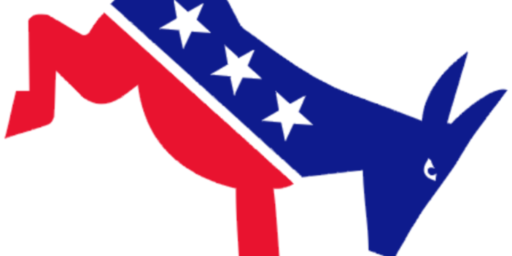
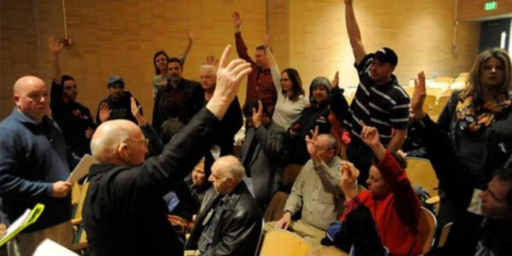
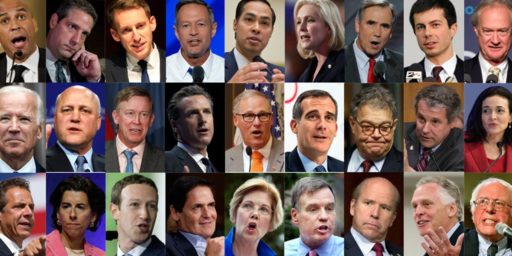
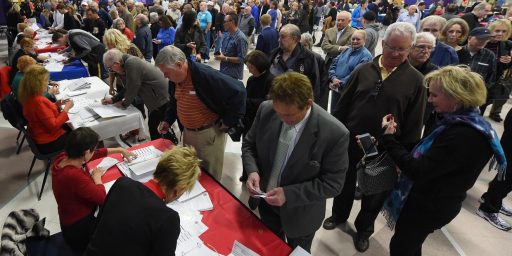
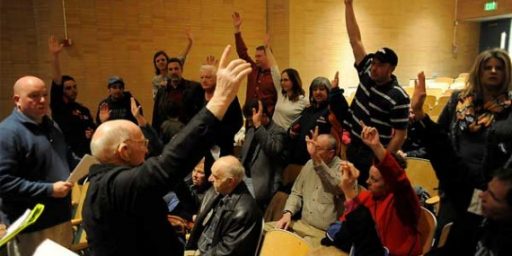
What does the grouping of all the state primaries and caucuses on Feb 5. or other earlier dates hold for Iowa and New Hampshire? I would like to think that these two states would diminish. Maybe not this year, but in 2012?
And if that happens, maybe we can get a sane primary calendar together where the primaries take place in May or June of 2008…
They still get to go first this year. And NH has threatened to move into late 2007 if need be to maintain its position.
It is all rather crazy.
All of this continues to move us closer to a National Primary. It is only a matter of time.
No it doesn’t. But it’s small potatos so long as we maintain the electoral college. That’s the real impediment to a true democratic system.
Mark, the compression of primaries makes Iowa and New Hampshire even more important. The winner of Iowa will be the immediate favorite in New Hampshire. A win there pushes them ahead in South Carolina. It will be very hard for other candidates to catch their breath and stop the momentum of the front runner. Then *POOF* the race is over and we begin the death march of the general election.
Steven, not much of a campaign can be translated into governing. Bill Clinton the second-greatest campaigner of my lifetime had to go “all campaigning all the time” because he wasn’t that great a leader. Look at gay in the military, the failed attempt at socialized health care, and the failure to appreciate the Islamist threat.